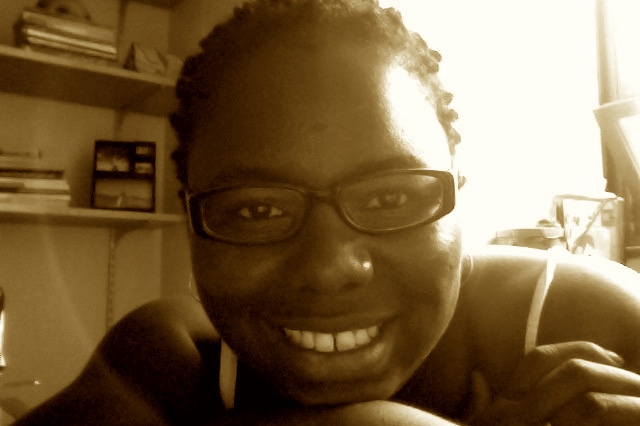While I have taught a variety of entry level courses — intro Logic, Ethics and Society, as well as a variation on UMD's Dialogue an Debate course — during my tenure at UMD, I have focused on Introduction to Philosophy and Critical Thinking.
I have three goals in these classes: 1) Develop students appreciation of how ideas fit together; 2) foster students capacity to articulate when and why some ideas fit together better than others; 3) develop students capacity to articulate disagreements about those fit issues with each other.
- Introduction to Philosophy
- Critical Thinking
Lately, I've become convinced that a key element in those goals is helping students appreciate why those skills are important and creating a context where students can comfortably practice those skills. Of late I have been working on creating robust communities of practice within my classes in order to meet that satisfy that second need.
- The Ethics and Aesthetics of Black Horror
- Existentialism and the Arts
- Racial Cognition
The intermediate level teaching I do is some of the most exciting teaching I do for a couple of reason. I designed or considerably reworked all three of these courses.
The Existentialism and the Arts course has the longest history at UMD (it used to be called Existential Literature). I have enjoyed taking advantage of UMD's 8am slot during "Spring" term to set the tone for understanding philosophical inclinations to doubt the meaningfulness of life.
Racial Cognition and the Ethics and Aesthetics of Black Horror (film) are new courses in UMD's new Liberal Education Category: Theorizing Race, Power, and Justice. The goal of these courses is to facilitate students appreciation of the complex ways that racial ideology is conveyed and maintained in our culture. I really enjoy helping students creatively engage with these tough subjects.
The largest variety of teaching that I've done at UMD is at the upper-level. While I've taught Aesthetics and Values and Technology, Ethical Theory, Philosophy of Race & Racism, Current, Social/Political Philosophy, and the Philosophy Seminar are the courses that I am still teaching regularly. These courses fulfill the upper-level writing requirement and so I include a variety of writing assignments as well as a research project.
- Current Social Political Philosophy
- Ethical Theory
- Philosophy of Race & Racism
- Philosophy Seminar
Lately, however, I have been focused on supporting students agency in their education. I work with students at the beginning of the semester to identify what success will look like for them. I have done group "contracts" as well as individual contracts. My intention is to foster students defining their expectations to make them more invested in the project of engaging earnestly in "difficult conversations".
Courses for the Honors Program
The Ethics of Callout Culture
I have greatly enjoyed teaching for UMD's Honor's Program. In that context, faculty are encouraged to engage unique pedagogical strategies and to really challenge students. While the Callout Culture class has really changed — as the cultural landscape of calling out has changed — it remains fundamentally an opportunity for students to think deeply about the trickier parts of living in community with people who are imperfect and to critically reflect on the shortcomings in how we do that now.
The most satisfying teaching I've done is mentoring students through independent research for Departmental Honors in Philosophy. The philosophy and cognitive science programs offer students the opportunity to work for up to two semesters on a research project of their choosing. Working with a mentor on either an original research project or on the development of a project from a previous class, students develop a greater appreciation of what longer form serious research writing is like. Once they've completed the written project, they defend the project before the program faculty and their peers. Seeing folks develop and crystallize complex ideas is just about the best thing going as far as I'm concerned.
Mentoring Students for Departmental Honors in Philosophy
- Honor’s Thesis - “Midwest Aversion to Conflict: The Trap of Being “Too Nice” to Be Racist” with Bennett Mullozzi (Defended Spring 2024)
- Honor’s Thesis - “Whose Problem is Picasso? An Analysis of Art Institutions’ Responsibility to Create a More Accurate Artistic Cannon” with Erin Cain (Defended Spring 2023)
- Honor’s Thesis - “Kierkegaard Meets Feminism: Can There Be a Proper Knight of Faith Today?” With Sophia Stone (Defended Spring 2023)
- Independent Research - “It’s Just a Joke: The Challenges of Racist Humor” with James Galke (Fall 2021 - Spring 2022)
- Honor’s Thesis - “Are We Patient-Centered Yet? A Phenomenological Assessment of the Patient-Centered Medicine Movement” with Aleksander Holleran (Defended Spring 2019)
- Honor’s Thesis - “The Vicious Disciplinary Super Cycle: The Systematic Maintenance of Violence Through Femininity” with Samantha Woller (Defended Spring 2018)
- Honor’s Thesis - “Language Games, Racial Slurs, and Charlie Sheen (tentative title)” with Trevor Winger (Defended Spring 2017).
- Undergraduate Research Opportunities Program (UROP) - “From URL to IRL: How TERFs expose the singularity of the internet and real life” with April Emig (Fall 2016 - Spring 2016)
- Honor’s Thesis - “The Devil or the Corpus Callosum: A genealogy and critique of transphobia in radical feminist ideology” with April Emig (Defended Spring 2015)

